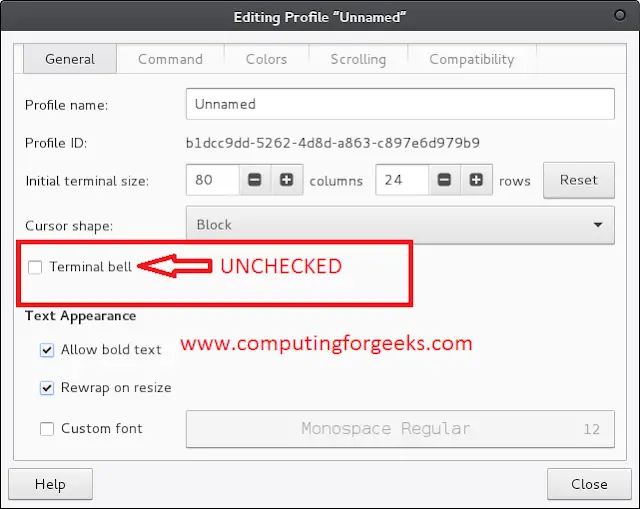A Box Plot is also known as Whisker plot is created to display the summary of the set of data values having properties like minimum, first quartile, median, third quartile and maximum. In the box plot, a box is created from the first quartile to the third quartile, a vertical line is also there which goes through the box at the median. Here x-axis denotes the data to be plotted while the y-axis shows the frequency distribution.
Creating Box Plot
The matplotlib.pyplot module of matplotlib library provides boxplot() function with the help of which we can create box plots.
Syntax:
matplotlib.pyplot.boxplot(data, notch=None, vert=None, patch_artist=None, widths=None)
Parameters:
| Attribute | Value |
|---|---|
| data | array or sequence of array to be plotted |
| notch | optional parameter accepts boolean values |
| vert | optional parameter accepts boolean values false and true for horizontal and vertical plot respectively |
| bootstrap | optional parameter accepts int specifies intervals around notched boxplots |
| usermedians | optional parameter accepts array or sequence of array dimension compatible with data |
| positions | optional parameter accepts array and sets the position of boxes |
| widths | optional parameter accepts array and sets the width of boxes |
| patch_artist | optional parameter having boolean values |
| labels | sequence of strings sets label for each dataset |
| meanline | optional having boolean value try to render meanline as full width of box |
| order | optional parameter sets the order of the boxplot |
The data values given to the ax.boxplot() method can be a Numpy array or Python list or Tuple of arrays. Let us create the box plot by using numpy.random.normal() to create some random data, it takes mean, standard deviation, and the desired number of values as arguments.
Example:
Python3
# Import librariesimport matplotlib.pyplot as pltimport numpy as np# Creating datasetnp.random.seed(10)data = np.random.normal(100, 20, 200)fig = plt.figure(figsize =(10, 7))# Creating plotplt.boxplot(data)# show plotplt.show() |
Output:
Customizing Box Plot
The matplotlib.pyplot.boxplot() provides endless customization possibilities to the box plot. The notch = True attribute creates the notch format to the box plot, patch_artist = True fills the boxplot with colors, we can set different colors to different boxes.The vert = 0 attribute creates horizontal box plot. labels takes same dimensions as the number data sets.
Example 1:
Python3
# Import librariesimport matplotlib.pyplot as pltimport numpy as np# Creating datasetnp.random.seed(10)data_1 = np.random.normal(100, 10, 200)data_2 = np.random.normal(90, 20, 200)data_3 = np.random.normal(80, 30, 200)data_4 = np.random.normal(70, 40, 200)data = [data_1, data_2, data_3, data_4]fig = plt.figure(figsize =(10, 7))# Creating axes instanceax = fig.add_axes([0, 0, 1, 1])# Creating plotbp = ax.boxplot(data)# show plotplt.show() |
Output:
Example 2: Let’s try to modify the above plot with some of the customizations:
Python3
# Import librariesimport matplotlib.pyplot as pltimport numpy as np# Creating datasetnp.random.seed(10)data_1 = np.random.normal(100, 10, 200)data_2 = np.random.normal(90, 20, 200)data_3 = np.random.normal(80, 30, 200)data_4 = np.random.normal(70, 40, 200)data = [data_1, data_2, data_3, data_4]fig = plt.figure(figsize =(10, 7))ax = fig.add_subplot(111)# Creating axes instancebp = ax.boxplot(data, patch_artist = True, notch ='True', vert = 0)colors = ['#0000FF', '#00FF00', '#FFFF00', '#FF00FF']for patch, color in zip(bp['boxes'], colors): patch.set_facecolor(color)# changing color and linewidth of# whiskersfor whisker in bp['whiskers']: whisker.set(color ='#8B008B', linewidth = 1.5, linestyle =":")# changing color and linewidth of# capsfor cap in bp['caps']: cap.set(color ='#8B008B', linewidth = 2)# changing color and linewidth of# mediansfor median in bp['medians']: median.set(color ='red', linewidth = 3)# changing style of fliersfor flier in bp['fliers']: flier.set(marker ='D', color ='#e7298a', alpha = 0.5) # x-axis labelsax.set_yticklabels(['data_1', 'data_2', 'data_3', 'data_4'])# Adding titleplt.title("Customized box plot")# Removing top axes and right axes# ticksax.get_xaxis().tick_bottom()ax.get_yaxis().tick_left() # show plotplt.show() |
Output:







